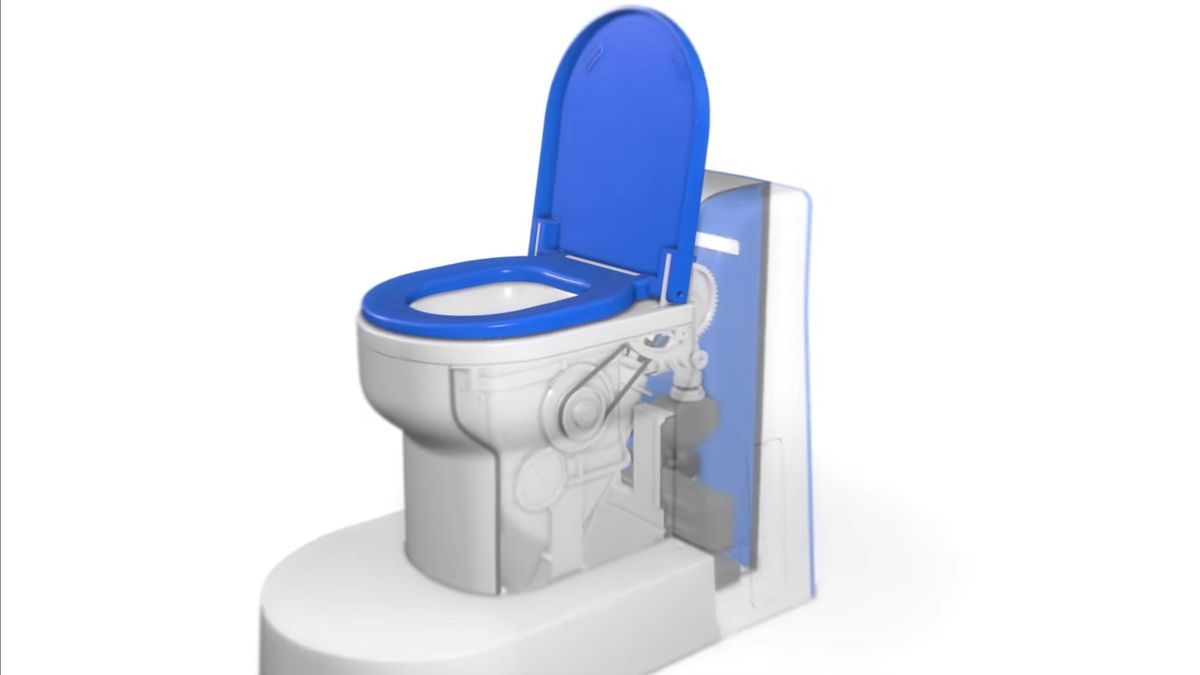JAKARTA - Billionaire Bill Gates has long focused on overcoming the sanitation crisis that is still happening in various parts of the world. One of them by making a sophisticated toilet.
Through his Gates Foundation, Gates provided a grant of nearly US$ 810,000 or equivalent to Rp. 11.6 billion to Cranfield University in 2012. This fund is to help develop the Nano Membrane Toilet.
Although it costs quite a lot of money, this toilet is different from the others. It doesn't require plumbing, but this Nano Membrane Toilet has its own mechanism to keep it clean without emitting unpleasant odors or loose dirt.
Nano Membrane Toilets are designed to use methods such as solids separation, loosely bound water separation, incineration to remove excess waste products, provide energy, and even generate water for bathing or watering plants.
The delicate built-in toilet mechanism is exclusively designed to separate and remove urine and feces without the need for additional water.
The unfavorable portion of the urine is separated from the usable water by a unique nanostructured membrane wall inside the toilet. After that, the water is sent to a tank that is accessible to the user.
However, the water taken from this toilet can only be used for bathing and watering plants. Unfortunately, the water is not fit for human drinking.
While the solids are deposited (meaning sinking to the bottom of the toilet), then separated with a thin knife and sent to the combustion chamber to be converted into electrical energy for low-power uses, such as charging cellphones. After burning, the result is an ash substance that needs to be removed once a month.
Launching Slashgear, Tuesday, March 15, as of June 23, 2021, about 46 percent of the world's population does not have access to proper waste treatment according to the World Health Organization (WHO). When using the toilet in a modern home (with a plumbing system installed), we may not think about where the waste goes when it's finished.
With the arrival of the Nano Membrane Toilet, it is a very different experience, and it is much cleaner to have access to such a commodity than to have to rely on toilet waste sitting outside the home. But outside of North America, Australia, and parts of Europe, it's much more common to see entire families relying on one bathroom.
When urine and feces do not have a place to hold, the toilet will leave waste products that attract harmful bacteria, which has the potential to contaminate nearby water sources and can spread disease.
According to UNICEF, this is often the case in places like Ghana, West Africa, where in 2015, only one rural household out of ten used a domestic toilet, while three out of every ten of them had open defecation.
In response to the worldwide sanitation crisis, Gates himself is leading the charge at just one of many entrepreneurial forces seeking to find and develop newer, cleaner, and less ecologically demanding toilets.
The English, Chinese, Japanese, Arabic, and French versions are automatically generated by the AI. So there may still be inaccuracies in translating, please always see Indonesian as our main language. (system supported by DigitalSiber.id)













